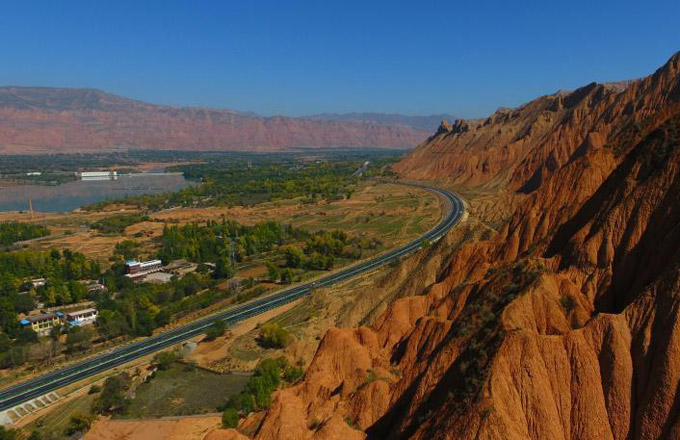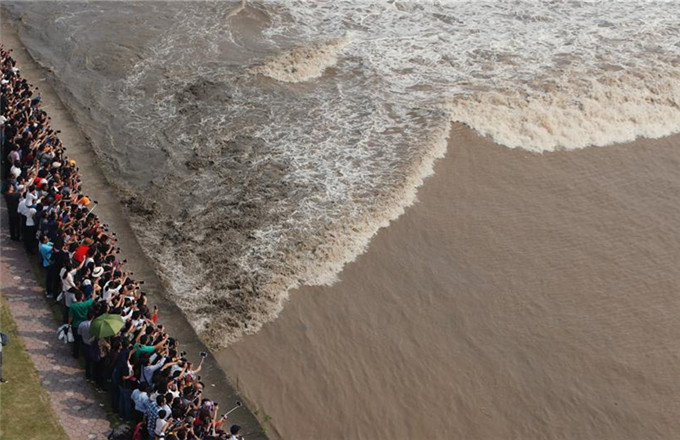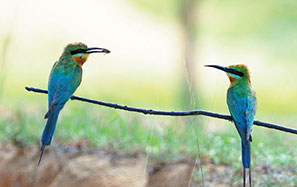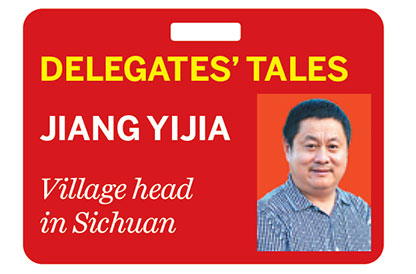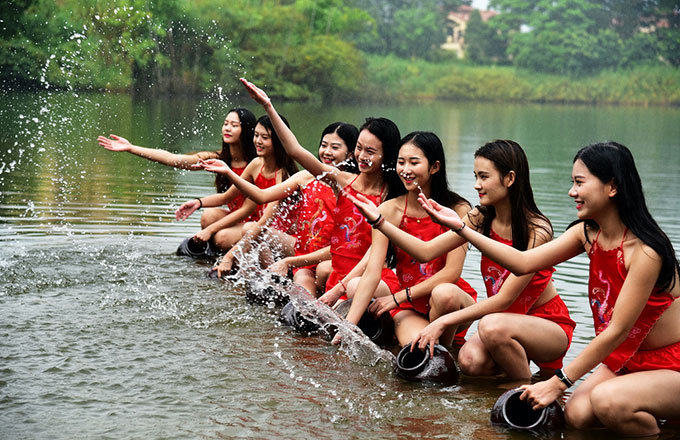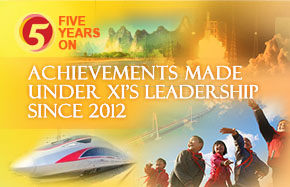Chen Yi
A native of Le Zhi, in Southwest China's Sichuan Province, and awarded by the People's Republic of China the military rank of marshal; Served as the country's Vice Premier (1954-1972) and Foreign Minister (1958-1972); Went to France for work-study programme in 1919 and joined the Communist Party of China (CPC) in 1923; Went down south with the Nanchang Uprising Army and met with the military forces led by Mao Zedong, First Chairman of the new China, in Jinggang Mountains, Jiaxi Province in 1927, for participation in the construction of the Jinggang Mountains Revolutionary Base and the struggle against an encirclement campaign launched by the Nationalist Party, namely, Kuomintang (KMT).
Persisted in the guerrilla war in southern China after the Chinese Workers' and Peasants' Red Army began its Long March; Served as Commander of the New Fourth Army and pioneered anti-Japanese revolutionary bases in the south and north of East China's Jiangsu Province during the country's War of Resistance Against Japanese Aggression (1937-54); Successively served as Commander of the New Fourth Army, Commander of the East China Military Area Command, and Commander and Commissar of the East China Field Army during China's War of Liberation, and organized and participated in a series of campaigns such as the Huaihai Campaign; Took part in and commanded the Crossing Yangtze Campaign and other campaigns aimed at liberating Nanjing and Shanghai in 1949 as Commander and Commissar of the Third Field Army.
Joined the work of receiving the US inspection team to Yan'an, in Northwest China Shaanxi Province as early as before the founding of the new China; Entrusted by Mao Zedong at the end of 1944 with making researches on the visit to China by Hurley, the envoy of the US president, aimed at mediating the conflict between the KMT and CPC; His proposal that the CPC should not accept the condition provided by the United States and KMT leader Chiang Kai-shek and should adopt a non-compromise and non-showdown policy was accepted by Mao Zedong; Acted as Mayor of Shanghai from the founding of the new China to 1958, and then Vice Premier and Foreign Minister; Actively implemented diplomatic thoughts laid down by Mao Zedong and Zhou Enlai, participated in the drafting of the long-term diplomatic strategy of the new China, and assisted Zhou Enlai in a series of important diplomatic events during his diplomatic career; Attended the 19th assembly of the Communist Party of the Soviet Union as a member of the CPC delegation and met with Stalin in October 1952.
Headed the Chinese party and government delegation to visit the former Democratic Republic of Germany, and paid a stopover visit to Poland in October 1954; Attended the Asian-African Conference, held at Bandung, Indonesia in April 1955 as an important assistant of Chinese Premier Zhou Enlai and a member of the Chinese government delegation; Accompanied Zhou Enlai to pay a goodwill visit to the Democratic People's Republic of Korea (DPRK), and made appropriate arrangement for the return of the Chinese people's voluntary army from the DPRK in February 1958; Successively paid a visit to Burma, India, Nepal, Cambodia, Mongolia, and Afghanistan in 1960 by accompanying Zhou Enlai or heading by himself a delegation, and signed the Treaty of Friendship and the Agreement on Economic Cooperation with Nepal, the Treaty of Friendship and Non-aggression with Cambodia, the Treaty of Friendship and Mutual Assistance with Mongolia, and the Treaty of Friendship and Non-aggression with Afghanistan; Headed the Chinese delegation to attend the Second Meeting of the Geneva Conference from May 1961 to May 1961 to discuss the peaceful settlement of the Laos issue. In the conference, the Declaration on the Neutrality of Laos and the Protocol of the Declaration on the Neutrality of Laos were concluded; Invited to attend the celebration of the independence of Kenya and visit 14 African, Asian and European countries in company with Premier Zhou Enlai from late 1963 to early 1964, realizing the first visit to the African Continent by China's new leadership.
Paid a diplomatic trip to Jakarta, Cario, and Algiers from April 1964 to June 1965 in preparation for the second meeting of the Asian-African Conference; Actively held consultations with countries concerned to consolidate Asian-African unity and oppose separation when the conference was shelved due to the coup d'etat of Algeria, the host country, thus finally succeeding in concluding an agreement on the postponement of the conference; Paid several visits to Asian and African countries, such as 10 visits to Burma; Successively accompanied Liu Shaoqi, the then chairman of China, to pay a goodwill visit to Indonesia, Burma, Cambodia, Viet Nam, Pakistan, and Afghanistan from the spring of 1963 to Spring, next year; Expressed viewpoints on a series of international issues at a well-known press conference held in Beijing in September 1965, and stated China's diplomatic positions, thus producing far-reaching influences at home and abroad; Paid unwavering efforts to struggle with the Lin Biao--Jiang Qing Group which held a conspiracy to sabotage China's foreign affairs following the launching of the country's "Great Cultural Revolution".
Commissioned by Mao Zedong to chair the "Four-Marshal1 Symposium" in 1969 together with Marshal Ye Jianying, Xu Xiangqian, and Nie Yunzhen on international situation. The four marshals brought forward some reports, such as the preliminary evaluation on the war situation, the views on the current international situation. In the reports, they held that within the foreseeable future, there was no much possibility for the United States or the Soviet Union to launch a large-scale war against China alone or with alliance. In the then world's Big Triangular ties, namely, China-US-Soviet Union conflicts, they held that China-Soviet Union conflict was bigger than the one between China and the United States, and the US-Soviet Union conflict was bigger than the one between China and the Soviet Union.
Based upon the incisive judgment, the four marshals put forward concrete concepts for China's foreign work by taking advantage of favorable international situation, These valuable analyses also become the preclude to Mao Zedong's strategic decision to open Sino-US icy relations. Premier Zhou Enlai's once made the following remarks about Chen's diplomatic talent and style: He has a distinctive style in diplomatic activities; He has a broad view, wide-range knowledge, acute vision, and unusual courage; he is often creative and holds a distinctive perspective while talking.




